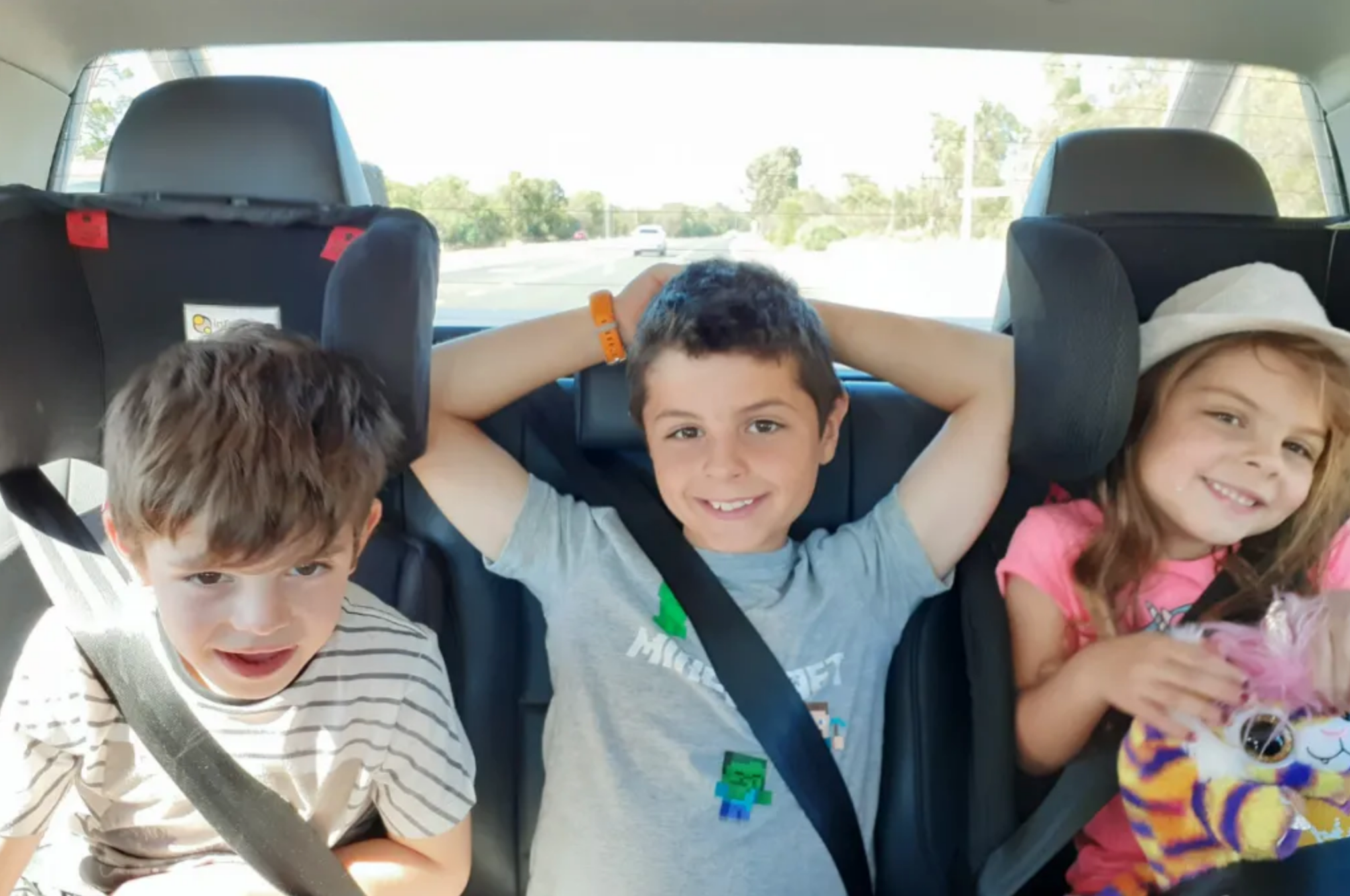Being a working parent is busy enough, but when you’re a family of five and one of your children has an intellectual disability, it brings a whole new level of challenge. Sonia gives us an insight into the emotional and physical demands of caring for a loved one who requires a high level of support.
Can you tell us about your current role and work schedule?
I am based in Western Australia and I work remotely as part of a team that provides customer service over the phone while working through other tasks and processes. I work Mondays, Wednesdays and Fridays with varying hours to ensure I am available for the kids and their school runs. Sometimes I work overtime on Saturdays. I’ve been with my current organization for 14 years.
We’d love to know a little about your family…
My husband, Chris, works as a welder less than 10 minutes from home, which is a bonus for our family.
We have three children– our eldest son, Julian, is quite bright, cheeky, fun, helpful around the house, loves being with his friends and is very supportive of Luke (until he gets frustrated).
Our youngest son, Luke, has an intellectual disability as well as epilepsy and autism, meaning there are many challenges due to his diagnosis. He is averse to certain sounds, the unfamiliar and boredom. He does not speak but prefers to communicate and learn about the world through seeing, feeling and touching things. He loves music, instruments, water play, bubbles, Mario Kart, YouTube Kids, swimming and anything that makes him laugh! Alexia, our youngest child, is a bubbly and happy girl. She is very affectionate and supportive where she can be with Luke. We also have a four-year-old Border Collie, Rocky, our loving furry family member.
What do you love most about being a working parent at your organization?
The amazing support I receive from my manager and team. They understand the challenges I face at home and they are really there for me!
Can you tell us about your day-to-day routines and some of the challenges you experience?
Luke requires support at all times as he does not understand safety or danger. He will turn on taps or the oven or even play with various household products (like shampoo or moisturizing creams) and make a mess! We keep things out of reach or locked away and ensure he gets enough stimulation. He will also get into the garage and our vehicles to play with all the buttons. It can get quite challenging and we often resort to YouTube Kids to keep him occupied and out of danger while I get on with daily life and the needs of my other two children.
Luke requires help organizing his breakfast, cleaning up, getting dressed and changing his diaper. He is not toilet trained and does not understand how to go; there are no signs of him understanding this yet. He also requires help with his lunch for school and sorting his school bag. His school bag is on wheels as he does not know how to put a bag on his back. Luke also requires melatonin to sleep; otherwise, he will stay up all night.
On the weekend, it can be challenging to stay home, so we try to visit family and friends, which Luke enjoys. If he has enough funding, I arrange a caregiver to take him out on Saturdays.
What is your way of coping with the emotional and physical demands of caring for a loved one who requires a high level of support? What do you do when you find yourself frustrated or overwhelmed?
I go for walks. I’ll talk to my sister, mother or friends or catch up with them on card nights or movie nights. Watching my favorite shows helps. Working also helps get my mind off things.
What support do you call on? How have you located the right services and support?
At the moment, mostly just friends and family. I have tried counseling but found it was not quite for me. Luke also receives support funding, which helps us arrange for a caregiver to take him out for a day and give us all a rest, plus therapy and toileting support.
What advice do you have for other caregivers or parents of children with a disability?
Just try to find what works for you, your child and your family. Surround yourself with supportive, accepting people. Don’t be afraid to talk when you are down or stressed out. Go for walks, meditate, take a bath or read a book. Give yourself some quiet time.
Caregivers often report feelings of loneliness and isolation. Have you ever felt this way and if so, how do you manage it?
Yes, I often feel lonely, like I’m the only person going through it. I tend to feel better when I talk about how I feel with my closest friends. Through sharing stories with others, you find you are not actually alone at all.
Being in good company as often as possible really works for our family and me. We know how much Luke loves to be social and busy, so it works well for him and we also get the chance to have a break from the craziness at home.
We try to find what works for us as a family or for Luke and go with that. It does not always work out, but we now know to expect that! If Luke is happy, it often leaves us in good spirits for the day.
When things are tough or Luke is having a bad day, my husband or I take over and the other takes the two kids for a break.
We’ve started a family tradition where we book a night away every three to six months at a simple resort or hotel. It’s a great chance to get away from our hectic life and spend time together. The simplest things work best for us.
Is there anything else you’d like others to know about what it’s like to have a child with high needs?
I have found this journey quite challenging in many ways. First, I have had to accept that this would be a very different parenting journey for us; milestones would look very different and I had to learn not to compare him to others of the same age.
I wanted to share my journey to reach out to others who are going through a hard time looking after someone needing a high level of support, which can cause a lot of stress, heartache and feeling alone. With the right help, you can do it. And you’re not alone.
What’s your approach to health and wellness? What does ‘me time’ look like for you?
I find ‘me time’ vital to dealing with everyday life. Watching my favorite shows or movies when the kids go to bed, going for walks with my dog alone, getting my hair done, reading a good book or catching up with my sister, mother or friends for coffee all fill my cup.


